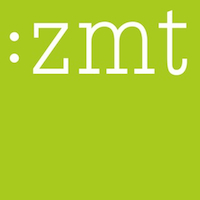Poll: If you notice a serious factual error in the source text, what would you do? Thread poster: ProZ.com Staff
|
|---|
This forum topic is for the discussion of the poll question "If you notice a serious factual error in the source text, what would you do?".
View the poll results »
| | | |
I’ll email the client and offer him/her a tentative solution. This has always been accepted with thanks…
| | | | | Depends on the client | Feb 21 |
This depends a bit on the client and the experiences I have made with them.
Ideally, I would inform them and suggest a correction. However, I used to work for a particular client (a huge international IT corporation) that never answered about 99% of all translator queries and if they deigned to reply every once in a while, it was just something like "Translate what the source says", so at some point, I simply didn't waste my time with sending them any more queries. Serves them and their sh... See more This depends a bit on the client and the experiences I have made with them.
Ideally, I would inform them and suggest a correction. However, I used to work for a particular client (a huge international IT corporation) that never answered about 99% of all translator queries and if they deigned to reply every once in a while, it was just something like "Translate what the source says", so at some point, I simply didn't waste my time with sending them any more queries. Serves them and their shoddy IT products just right. ▲ Collapse
| | | | Carla Selyer 
Local time: 10:21
Member (2006)
Portuguese to English
+ ...
| "Serious factual error" is open to interpretation... | Feb 21 |
I will always inform the client about it, though I find this survey question open to interpretation. What kind of factual error would this be? Most of the time, what I encounter is a spelling mistake or an error in the date, once or twice an error in the country name. I wouldn't know if there is a factual error in the way a product is being manufactured, unless during my research I might encounter something.
| | |
|
|
|
Kay Denney 
France
Local time: 09:21
French to English
Alex Lichanow wrote:
This depends a bit on the client and the experiences I have made with them.
Ideally, I would inform them and suggest a correction. However, I used to work for a particular client (a huge international IT corporation) that never answered about 99% of all translator queries and if they deigned to reply every once in a while, it was just something like "Translate what the source says", so at some point, I simply didn't waste my time with sending them any more queries. Serves them and their shoddy IT products just right.
Someone here once recommended, instead of sending in a list of questions, to send in a list of suggestions.
Basically, it's the questions with a suggested solution.
At the end of the list, you put "if no answer by [time that would give me enough time to change my translation in light of their answer], I shall assume that you agree with all these points."
I sometimes decide to have a bit of fun and make one suggestion that would probably result in something nonsensical.
Funnily enough, putting devilish suggestions in always gets them moving to make sure I didn't put that.
| | | | Kay Denney 
France
Local time: 09:21
French to English
Carla Selyer wrote:
I will always inform the client about it, though I find this survey question open to interpretation. What kind of factual error would this be? Most of the time, what I encounter is a spelling mistake or an error in the date, once or twice an error in the country name. I wouldn't know if there is a factual error in the way a product is being manufactured, unless during my research I might encounter something.
I do a lot of translations for museums. I systematically check for spelling, in that often we'll spell names differently in English (especially for Russians but not only). And the texts invariably have some artists' names spelt wrong. I look them up, and I look up the names of their works too, and I'll often read up a bit on the artists while I do so. If I see anything that seems to contradict the text I'm translating, I'll check on other websites if possible, and I'll flag anything that appears to be wrong in a comment. If there are three websites saying an artist was born in Poland and my source text says she was born in Hungary, I'll point that out. It happens quite often.
It's not always *serious* of course, it's not like it's an instruction manual for a medical device that might kill patients if I translate it wrong.
| | | | To report site rules violations or get help, contact a site moderator: You can also contact site staff by submitting a support request » Poll: If you notice a serious factual error in the source text, what would you do? | CafeTran Espresso | You've never met a CAT tool this clever!
Translate faster & easier, using a sophisticated CAT tool built by a translator / developer.
Accept jobs from clients who use Trados, MemoQ, Wordfast & major CAT tools.
Download and start using CafeTran Espresso -- for free
Buy now! » |
| | Wordfast Pro | Translation Memory Software for Any Platform
Exclusive discount for ProZ.com users!
Save over 13% when purchasing Wordfast Pro through ProZ.com. Wordfast is the world's #1 provider of platform-independent Translation Memory software. Consistently ranked the most user-friendly and highest value
Buy now! » |
|
| | | | X Sign in to your ProZ.com account... | | | | | |






















